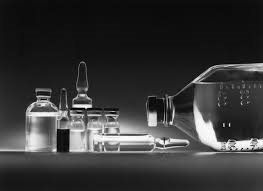Could Gylcine and Serine Help Prevent The Spread Of Cancer?
Amino acids are well-known for being the building blocks of protein. They are essential for a healthy body. New research has found that amino acids may also be influential in the fight against cancer. However, rather than increasing the availability of specific amino acids, reducing the intake of these building blocks is yielding positive results. This may pave the way for a new natural cancer treatment to be used together with conventional anti-cancer drugs.
Gylcine and Serine
The recent research centres on the effects of two non-essential amino acids, glycine and serine. Glycine is involved in the production of various acids. It is needed in the regulation of many essential processes in the digestive system and central nervous system. The amino acid L-glycine is the key building block of L-serine. This amino acids is involved in cell production. It has therefore a critical role in the function of RNA and DNA. Researchers at the Cancer Research UK Beatson Institute and the University of Glasgow have found that these amino acids can influence cancer cells.
Stopping Cancer Growth
 Maddocks and colleagues investigated the effects of these amino acids on mice with lymphoma and intestinal cancer1. The growth of their cancerous tumours slowed and their lives lengthened by removing glycine and serine from the diet of these mice. This is thought to be because healthy cells are able to generate sufficient levels of serine and glycine. Cancer cells depend heavily on acquiring these amino acids from diet to progress.
Maddocks and colleagues investigated the effects of these amino acids on mice with lymphoma and intestinal cancer1. The growth of their cancerous tumours slowed and their lives lengthened by removing glycine and serine from the diet of these mice. This is thought to be because healthy cells are able to generate sufficient levels of serine and glycine. Cancer cells depend heavily on acquiring these amino acids from diet to progress.
The study, recently published in the journal Nature, also found that the modified diet made some cancer cells more susceptible to reactive oxygen species. Treatments such as chemotherapy and radiotherapy boost these chemicals further. This suggests a potential to make conventional cancer treatments more effective in combination with a specialty diet.
Do All Cancers Respond The Same?
Unfortunately, the study did find that limiting the availability of serine and glycine did not have the same cancer-reducing reaction in all types of cancer cells. Specifically, a glycine and serine-limited diet does not impair cancer tumours with an activated Kras gene. Most pancreatic cancer have this gene activated. The Kras gene seems to enable cancer cells to produce their own glycine and serine. This makes a dietary change ineffective when trying to limit tumour growth.
A Temporary Cancer Treatment?
It’s important to acknowledge that both serine and glycine have other important functions within the body. Eliminating these amino acids from a diet can only be a short-term option and not a long-term solution for cancer sufferers. Instead, a temporary glycine and serine restriction could form part of a controlled diet within an overall cancer treatment plan. Such an adjustment would have to be carefully monitored and controlled by doctors to ensure safety.
The Future Of Cancer Treatments
The research conducted by the Cancer Research UK Beatson Institute and the University of Glasgow has highlighted the importance of nutrients in overcoming cancer. This study has demonstrated that by stopping the supply of certain amino acids it is possible to retard cancer cell division and growth. This essentially results in reducing the development of tumours.
The next stage of research will examine the feasibility and safety of using a similar therapy on human cancer patients in clinical trial. This will also investigate which patients are likely to benefit from specialised diets based on the specific cancer and associated characteristics.
Bibliography
- Maddocks, O. et. al. (2017). Modulating the therapeutic response of tumours to dietary serine and glycine starvation. Nature. Volume 544 (7650): 372 DOI: 10.1038/nature22056 ↩




